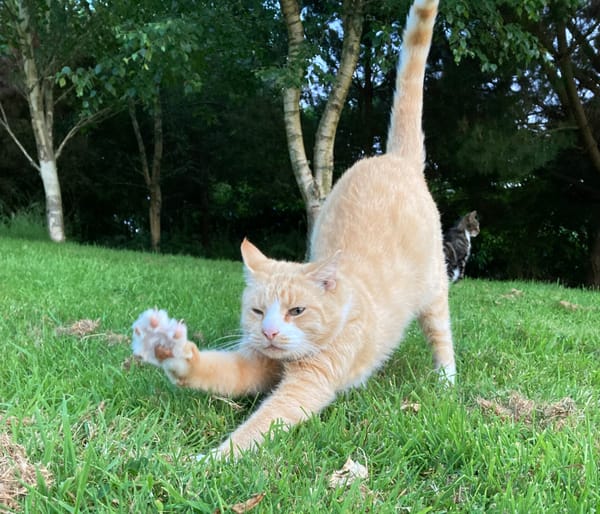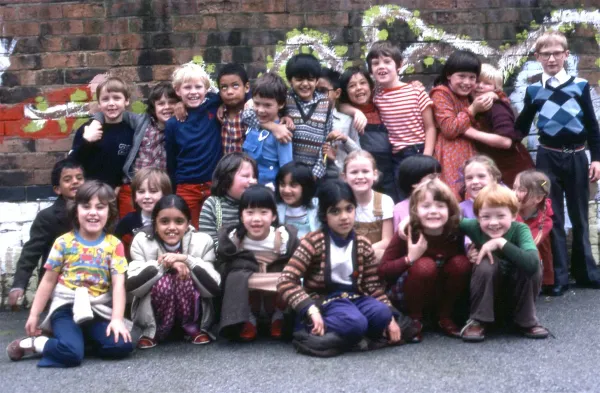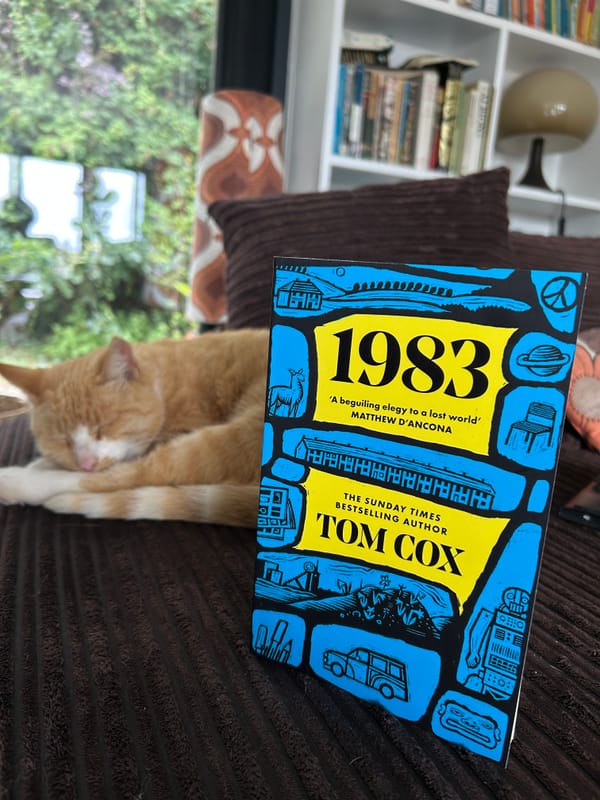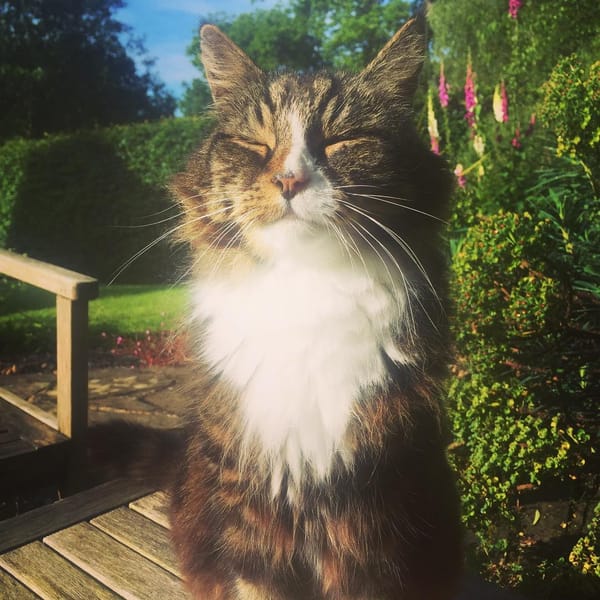A Quarter Of A Hundred
On part-climbed mountains, two Welsh graves and the complex path to the 25th building I've resided in...
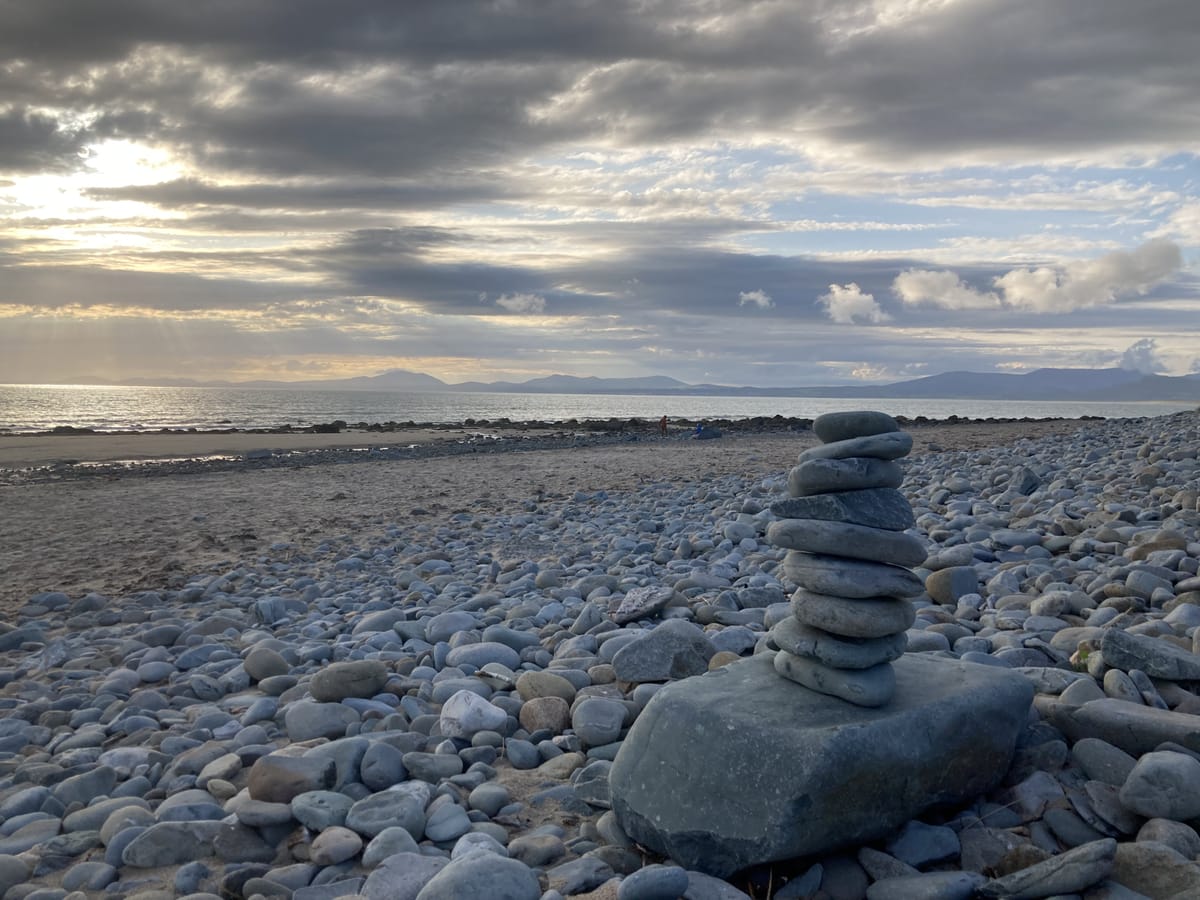
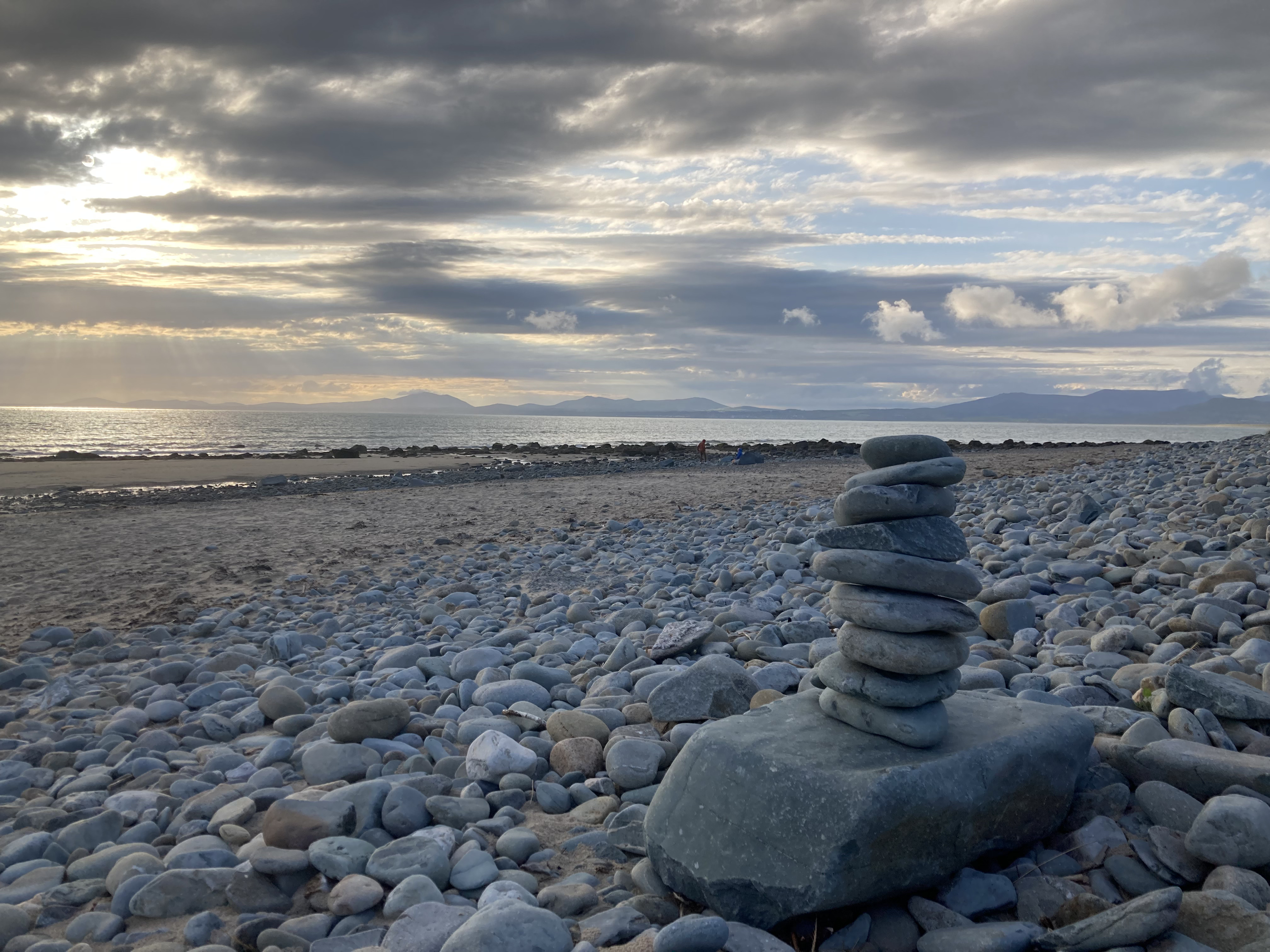
A new place can rearrange your molecules. In a way, my whole experience as a writer could be boiled down to me learning this fact over and over again. Last month I went to Snowdonia and I learned it once more, in a heady, pungent way. In the car, I felt a little drunk, as I often do when I’ve been driving forever and a new, spectacular place is spinning past and above me on either flank. The weather was pure wank but that was fine because it meant the mountains looked all smoky and impossible. I’d been before but not to this precise part. The Scouse side of my family regularly holidayed not far from it in the 50s and 60s. When you added the scenery to the accent, which sounds like the whole of central Liverpool got overrun by some pleasant bracken, it felt familiar yet totally Other in a way I’d never quite experienced before: like somewhere I’d concocted in an overambitious moment, in denial of most of what I knew about the British Isles, then discovered actually existed. After driving a long road that the context of the mountains made short I turned up a steep twisty lane to a grand gothic building, up amongst the chilly smoke, and swiped an electronic key in the door of an annexed room that the internet had somehow permitted me to sleep in for £54. During the night I was able to develop some theories as to why. Permanent live-in ghost? Almost certainly. Extremely bad dream. Loads of people attacking me with their long lobster claws, coming out of the cold smoke: all extremely unpleasant individuals, some familiar, some not. Quite jarring, after five and a half years of uncontaminated sleeps in nonhaunted homes. Reminded me a little of when I lived on that snowblocked almost-mountain that time, in the plague farmhouse, and dreamt about spooning a 17th Century skeleton. I woke up feeling pretty good, all considered. Stood in the sideways wazzing rain and admired the view. What a place.
I was here exploring a hypothetical scenario. The name of the hypothetical scenario was ‘Two People Conveniently Coincide The End Of Their Short Term Tenancy in Cornwall With The Purchase Of A House In North Wales Where Houses Are Not Quite So Astonishingly Expensive’. Unfortunately one of the people had been hit with a chest infection, so it was just me here, my job being to report back with my findings. These findings would hopefully include a small quiet house with a nice view, some attractive original mid 20th Century features and a need for some not cripplingly exorbitant refurbishment. I was booked to see two. The second was the sexiest by far but turned out to have a Japanese knotweed problem. I thought it would be fun to do a six mile walk to the first but didn’t bargain for the footpath being quite so wholly swallowed by foliage. Having failed with my initial idea of simply trying extremely hard to walk through it, my cunning solution was to forge a path for myself by using my whole body to repeatedly fall onto the drenched ferns and brambles in front of me. It worked, and I made it on time. The downside was that I arrived looking like a man who had been in a bath full of tiny knives. The lady whose job it was to show me around was friendly and unjudgemental. Surprisingly, from what I had so far gathered, that seemed to be the default mode of the North Welsh estate agent: being, like, an actual person, who you could talk to, and maybe even imagine chatting to about subjects other than money or buildings. This one, Tabitha, was so nice she made me wish I liked the house more, but, as great as its position was, it wasn’t right. The problem wasn’t the two graves of the previous residents at the bottom of the garden. There was no conceivable vision available to me of my partner and I inside the building, existing as us. Also, it needed more work than we could afford.
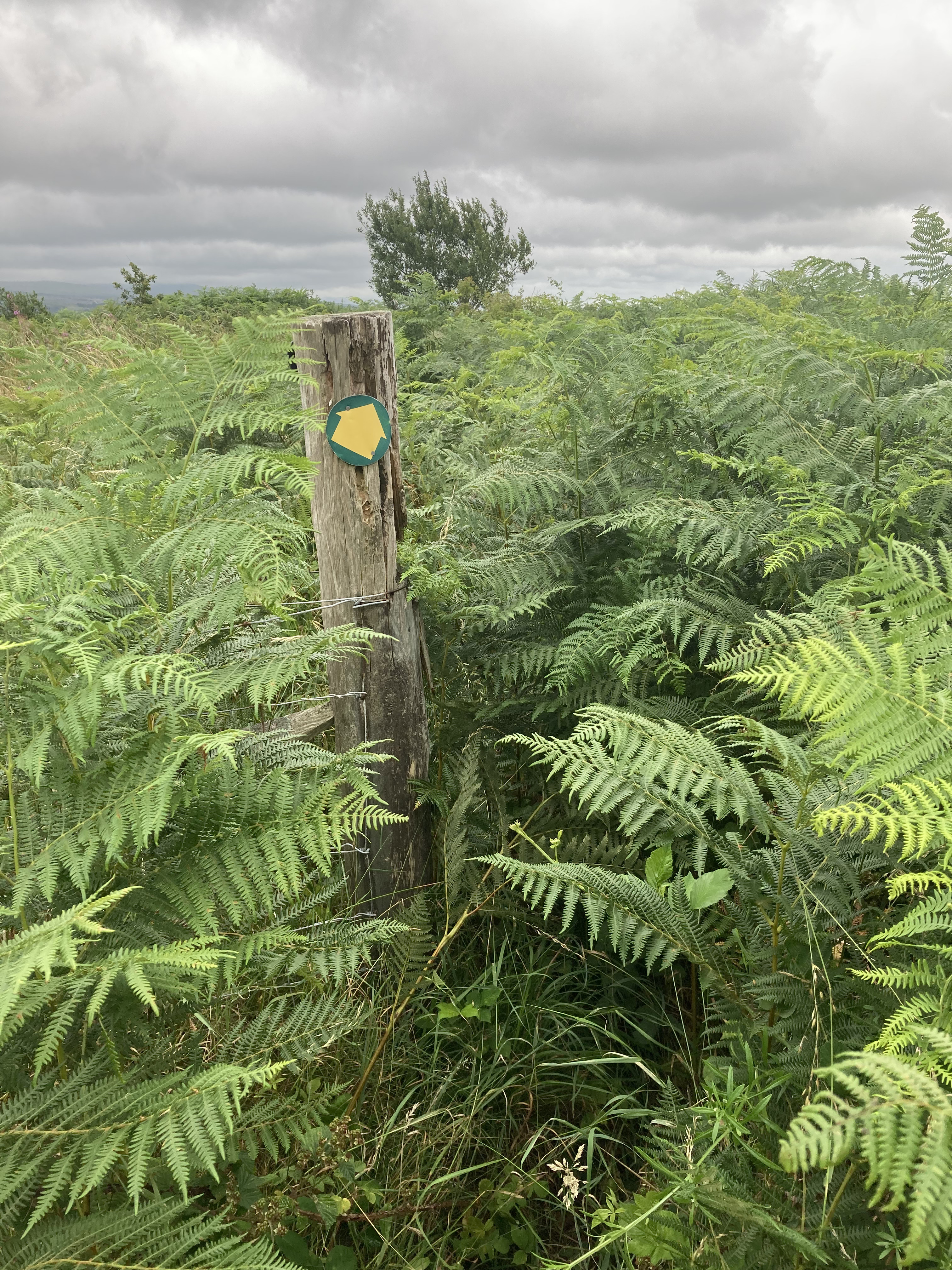
Back home in Cornwall, we rubbed Snowdonia between our teeth for a while. It tasted great. But maybe it tasted great in the way that great stuff we didn’t want to eat every day tasted great. Asparagus, or Iced Gems. Could we really do this? Move to the house with the Japanese knotweed problem? My experience of relocating to another part of the country from the South West Peninsula, which I’ve done three times, is largely running back to the South West Peninsula very shortly afterwards and saying sorry to it. Who’s to say I wouldn’t want to do that again? We saw a different life open up to us, next to the sea, with the mountains directly behind us. “Wow, they even have an embroidery group in the village!” my other half said. I delayed a returned call to the estate agent. My earworm for these torn days was ‘Under A Mountain’ by the Black Crowes: a song I loved when I was 20 and had only lived in two different parts of the country, as opposed to eight. Chris Robinson singing, “In need of flattery, she changes battery, so that her light will still shine.” Every time I’d relocated, in the last ten years, that’s what it had felt like, creatively speaking: a battery change. This would no doubt be another very exciting one. But also I knew me doing my best writing when I was moving house a lot was just a nonsense theory I sometimes played around with in my head, like the time I tried to convince myself I did my best writing when I was single. We went out and saw some people we knew. “Wow, they are really good, these people, aren’t they,” we agreed. “Do we really want to leave people as good as these 307 miles away in our past?” Without becoming any less attractive, Snowdonia began to thin and fade in our minds. I dreamed dreams much softer than, and not quite as vertiginous, as the one I dreamt while I was up there, dreams that accorded with this particular landscape, rather than that one. In the most frightening one I climbed into woodland where all the trees were boxes of receipts. “Another plus of not buying a house!” I thought, upon waking up. “I can put off doing my 2022-23 tax for a few more months.”
“You move house a lot, don’t you?” somebody said to me yet again on social media the other day. If I had a really massive nose, they could ask “You have a really massive nose, don’t you?” and the question would be equally useful and productive. I could have gone around the internet offering custom-fit responses to the hundreds of people who have asked some variation of “You’re moving AGAIN?” or “Where are you moving to this time?” over the last few years but with time constraints in mind, instead I’ve decided to write about it in a fair amount of detail on blogs, in books, and on this Substack page. The reasons behind my moves have been complex. My writing is stimulated by new places, and the ways they change you when you are more fully in them. For the last decade I have been a renter and tenancies are often limited by nature. Despite not travelling light, I’ve become very good at the logistics of moving. Practice, and probably nothing more, has made me a pro. But, on the verge of a tenth move in as many years, to what will be the 25th building I’ve lived in during a mere 48 and a quarter years on the planet, I’m also tired. The last move, being Covid-wrecked, among other things, hit us hard. I have, since then, started to feel a little less positively towards the whole concept of possessions. Relocation time marauds all over creative time. Emotionally and socially, big fresh starts are exhausting: they stretch out your friend groups, complicate your geographical life in ways you can’t always foresee. The more different houses you rent as a self-employed person, the more you feel like you’re having your life analysed and judged. I have had enough of surfing Right Move and looking at all the massive crap clocks in other people’s living rooms. Financially draining and terrifyingly competitive, the rental market of now is unrecognisable from the one I first re-entered a decade ago. Today, we found out we had been officially accepted to rent - and hopefully stay long term in - a house in Devon, the county I always seem most powerfully drawn back to. The combination of relief and excitement is enormous. Easily enormous enough to squash any lingering thoughts about Wales.
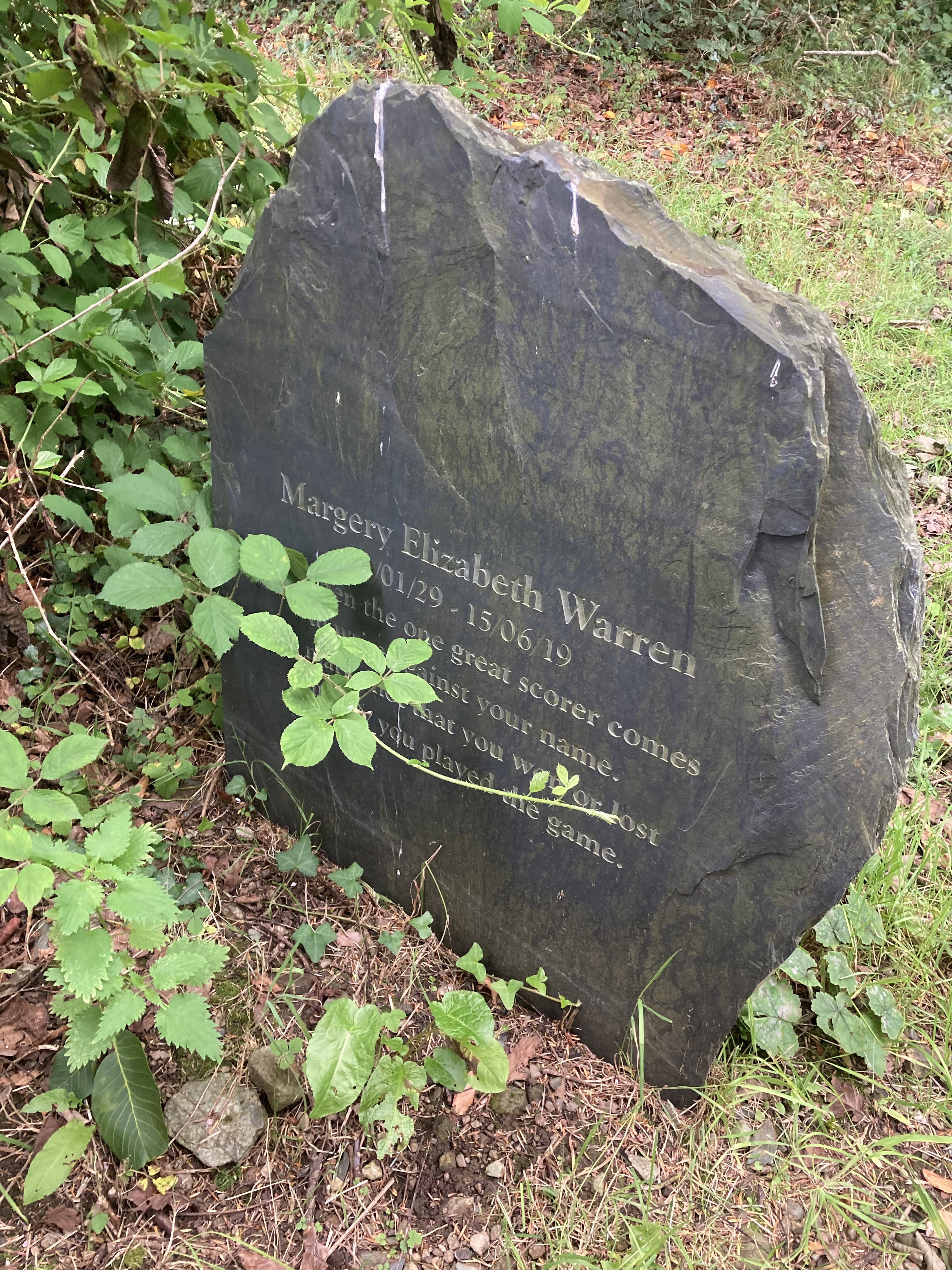
They were quite tasteful, those gravestones in the garden of the first house I viewed in Snowdonia, made of slate from the local quarries, with a Neolithic look to them. Unlike the 1950s grave of a dead child in the garden of a dark, low-ceilinged house I viewed in North Devon in late 2019, they did not rattle an icy shiv along my vertebrae. The couple under the ground had lived long lives. The lady, Margery, made it to 90, and successfully climbed Everest towards the end of the last century, not long after her 70th birthday. I am guessing they must have liked their home, based on their decision to stay in it for eternity. And why on earth wouldn’t they, being above that coastscape, under those mountains, where it probably wouldn’t even occur to you to change battery at all? Nomadism can be a convoluted business and, as much as I’ve made it work for me, there’s something very appealing about simplicity of permanence, and I can think of at least two houses I’d have lived in forever, if I’d been permitted to. Stillness, though, is not always easy to find, especially in the middle of a housing crisis. When you’ve moved a lot, you know the wildly divergent tracks relocation can put your life on. But the innate knowledge of that can breed a kind of panicking perfectionism: the belief that, amongst all these choices you are seeing in front of you, there can only be one correct one. Much more likely the truth is that, while there are surely a lot of bad choices out there to be made, and everything feels pinched and limited like never before for a lot of us, there are actually plenty of good choices out there, all with their varying pluses (and minuses). All we can do is trust that we have made one of them. One thing is for sure: nobody could rightly accuse us of not putting enough energy into it.
You can order my latest book, with free worldwide delivery, here.
You can support by next book - which is now completed and will be published in spring next year - here.

